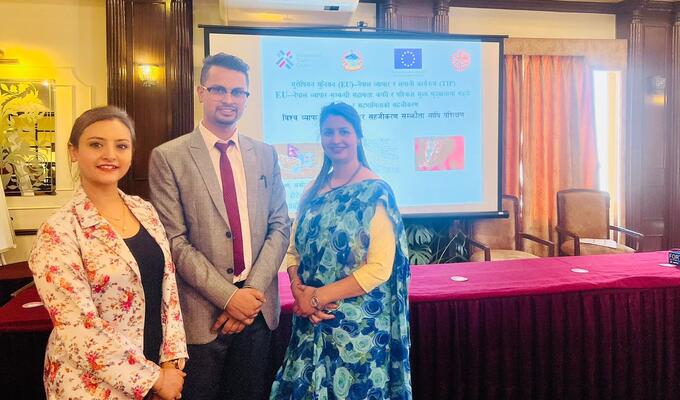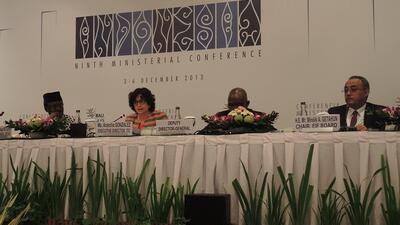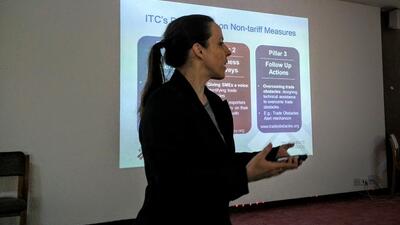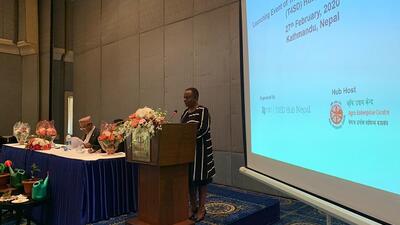

Trade facilitation measures to expedite trade for Nepali business
International Trade Centre conducts training series on WTO Trade Facilitation Agreement for small businesses in Nepal
Kishore Kuikel was one of the three master trainers in a series of trainings aimed at boosting the capacity of the small businesses involved in cross-border trade in Nepal.
During the five training events in five provinces of Nepal, Kuikel had the opportunity to identify the problems that the participants face in their international trade operations.
“Most participants lacked knowledge of how to access trade-related information, and they were not informed about the government’s new initiatives to put in place various rules to implement the World Trade Organization’s Trade Facilitation Agreement,” said Kuikel. “They are bearing a heavy cost for not being aware of the right cross-border trade information,” added Kuikel.
Sita Adhikari, another trainer and a leading freight forwarder said the lack of basic trade information among the small businesses shows the need for more training to sensitize them about the Trade Facilitation Agreement (TFA), and how this Agreement offers various opportunities to simplify cross-border trade.
Nepal has so far implemented only 2.1% of the total TFA provisions since it was ratified in 2017 and still has a long way to go to fully implement the agreement by 2032. Nepal has begun the process of implementing selected Category C measures under the TFA with the technical assistance from the International Trade Centre (ITC) as part of its European-Union funded Nepal Trade and Investment Programme (TIP). The TFA is expected to reduce the cost and time of international trading significantly, thereby removing cross-border inefficiencies, reducing trading costs by 14.3 %, and leading to a $1 trillion increase in global merchandise exports.
Keeping in view the necessity to raise awareness of the trading system among small businesses, the training focused on existing cross-border inefficiencies and provisions of transparency, fairness and efficiency. Almost 240 small business representatives, including 78 women, benefitted from these trainings in Nepal.
“Even though the trade-related information is available online through the websites of relevant agencies, entrepreneurs still face challenges to access all the required information. They are also not adequately sensitized about the opportunities that the TFA offers,” Trainer Adhikari said.
The trainings were organized by the EU-Nepal Trade and Investment Programme (EU-TIP) and the International Trade Centre (ITC) in partnership with the Ministry of Industry, Commerce and Supplies (MoICS), the Federation of Nepalese Chambers of Commerce and Industry (FNCCI) and provincial Chambers of Commerce and Industry. The lively interactions between officials, trainers and participants proved to be instrumental in understanding each other’s issues.
Kriti Khatiwada, another trainer and a senior officer of FNCCI, said most of the enterprises are not fully aware of how to visit relevant websites to look for trade information. “There also exists a communication gap between service-providing government agencies and businesses. As small companies are the least informed group of traders, there must be a platform or online tools to make even small inquiries,” said Khatiwada.
All trainers concluded that Nepal can only fully benefit of the TFA by enhancing the capacity of Nepali traders and removing inefficiencies in their trade environment.
About the EU-Nepal Trade and Investment Programme
The EU-Nepal Trade and Investment Programme (TIP) is a four-year programme funded by the European Union (EU), to assist the Government of Nepal in achieving sustainable and inclusive economic growth and poverty reduction through increasing trade and participation in regional and global value chains.









